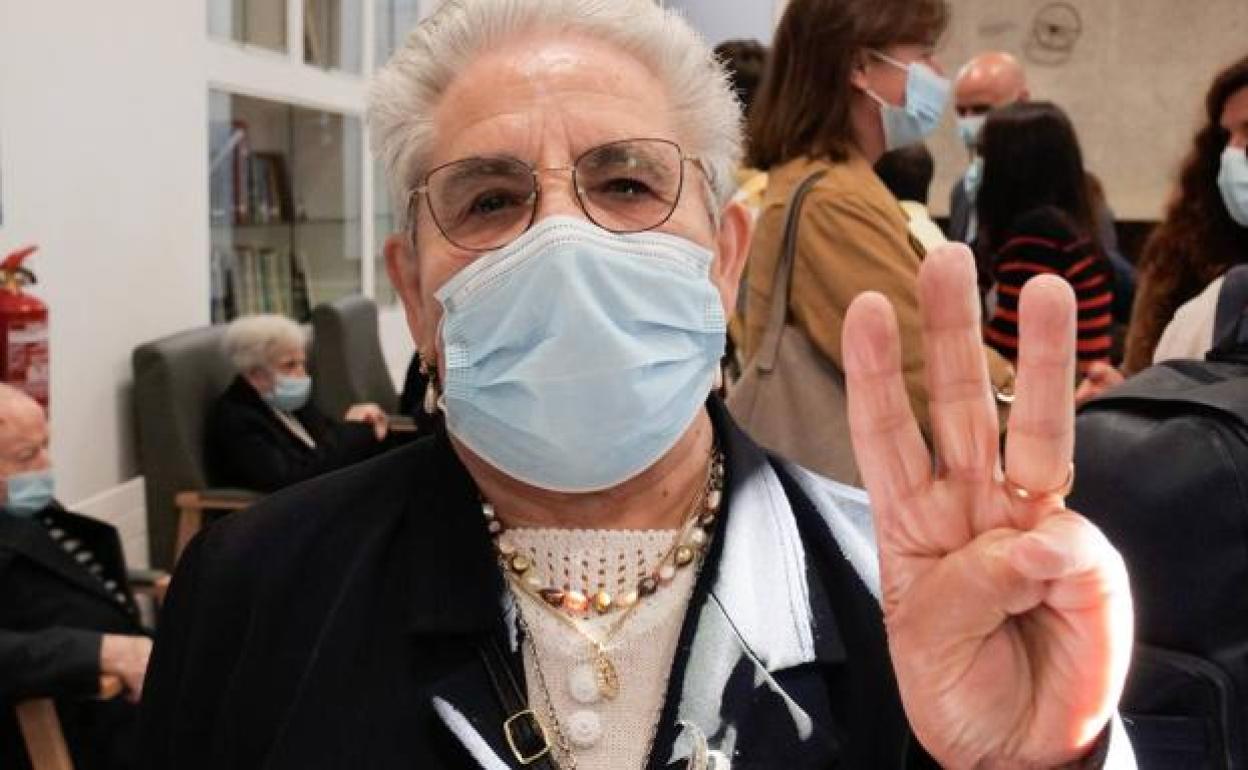Spain opts not to give a fourth Covid jab to the elderly, for now
Due to a rise in coronavirus infections in Europe, France announced that it will administer another 'booster' dose to all those over 65 and Germany has extended it to those over 70 years of age
ÁLVARO SOTO
Monday, 21 March 2022, 12:20
The unexpected change in the trend of the coronavirus pandemic, which once has seen an explosion of infections caused by the Omicron variant in Europe, has once again put the debate about booster doses on the table.
France announced on Friday that it will administer a fourth dose of a Covid-19 vaccine to all those over 65 years of age and Germany has extended it to those over 70 years of age, residents in nursing homes, immunosuppressed people and health workers while the pharmaceutical companies Pfizer and Moderna also recommend the fourth dose for everyone over 65 years of age.
Premature
But this approach collides head-on with the opinion of international organisations and Spanish experts, who consider it premature to administer another dose now. The Spanish Ministry of Health also agrees and, for now, is not considering extending the ‘booster’ jab beyond the 350,000 immunosuppressed people (patients who have received transplants, are undergoing cancer treatment or are over 40 years of age with Down syndrome) who are already receiving it.
Spanish Health ministry sources confirm that no move is being made in this direction, although they do not completely rule out that there could be a change in the coming weeks, or more likely, in the coming months, specifically, with regard to autumn.
No evidence
The European Medicines Agency (EMA) insisted last week that there is no scientific basis to justify a fourth jab. "There is still no evidence to justify a recommendation for a second booster dose for the general population," said its head of vaccination strategy, Marco Cavaleri. And, "at the moment there is not enough evidence to make it necessary," said the director of the Department of Public Health and the Environment of the World Health Organization, María Neira, previously stated.
Vaccine fatigue
The scientific bodies in Spain agree with these statements. The president of the Spanish Society of Immunology (SEI), Marcos López Hoyos, has called for “patience” and warns of a possible “immunological fatigue”.
"We are vaccinating too much in a short time," he says, before offering some clues about future booster vaccinations against covid-19. "At the moment, we continue to vaccinate with against the Wuhan strain and now we are seeing that it may be insufficient and that we need new vaccine models. We should wait for vaccines that are prepared for the new variants or that do not specifically target the S protein, like the current ones. Pfizer and Moderna are already working on these models”, explains López.
Fernando Moraga-Llop, vice president of the Spanish Association of Vaccinology, is also in favour of waiting. “If the pandemic follows the current evolution, it is possible that a fourth dose will have to be given to the elderly in the coming autumn. But that jab will be with vaccines better adapted than the current ones”, he points out.
Indoor masks
These adaptations, Moraga-Llop specifies, are moving in two directions. “On the one hand, Pfizer and Moderna are preparing specific vaccines against Omicron and other variants. On the other hand, there are already two vaccines that use recombinant protein technology and that add an adjuvant that further stimulates the immune response, which are those from Sanofi-GSK and the Spanish one from Hipra. It is likely that Hipra will be the booster vaccine given to those in Spain, over 65 years of age, in the autumn," says Moraga-Llop.
The specialists also warned people to be vigilant in the face of this new uptick in infections, "caused by the relaxation of restrictions and the BA.2 lineage of Omicron," said López Hoyos. "You shouldn’t remove the need to remove masks indoors until you have an incidence rate of 100 (Spain is at 445)," says Moraga-Llop, who also warns of the danger of an increase in flu cases this year.
